=By Funmi Falobi=
Though Nigeria, the acclaimed giant of Africa is one of the countries thriving in agriculture in the continent, inaccessible funding opportunities largely hampers food production and agro allied investments by budding farmers and entrepreneurial agricultural investor. This was the outcome of interaction with a number of agric entrepreneurs by sdnonline.
It would be recalled that one of the cardinal programmes of President Muhammadu Buhari, when he assumed office in 2015 was to improve the agriculture sector in order to ensure food security in the country. In this stead, the federal government therefore earmarked billions of naira to the sector in order to assist farmers increase food production in the country and eventual exportation of farm produce. Comparatively, there had been an increment in the budgetary allocation to agriculture as the agriculture sector received an allocation of N92 billion and N118.98 billion in the 2017 and 2018 appropriation act, respectively.
However, as laudable as government initiative is, farmers especially grassroots and budding agric entrepreneurs lament that they do not have access to the loan that will help them in their farming activities to boost and increase production. To many of these farmers, accessing loan in the banks is still a major problem as the interest rate is not encouraging. As a result, many of the farmers still engage in manual labour instead of mechanized farming which is the global standard for result oriented farming.
According to Mr. Vincent Amakudi, a farmer, who specializes in crop farming, funding is a major issue affecting farmers in the country. He notes that whether it is manual or mechanized labour, “Farmers will be able to do a lot when there’s funding.”
Mr. Femi Oke, Chairman, All Farmers Association of Nigeria (AFAN), Lagos chapter, explained that the challenges facing farmers are enormous including finance. He noted that though the Bank of Industry (BOI) is expected to grant N250,000 minimum to farmers, but he queried, “are they complying?”.
“Although Federal Government budgeted money for agriculture but BOI can only give those that are into processing. We were told that they will recapitalize BOI that it will not be under the Central Bank of Nigeria, but the bottleneck is still there. Many farmers are not accessing this loan, we are just hearing it.
“In machinery, we are still using manual methods but things have gone mechanized. Bulldozer is very necessary for those in crops before using hoe and cutlass but an average farmer can’t afford it. We want government to come to our aid. Government should come, let’s discuss how to collaborate,” he said.
Buttressing the need for accessible funding, an anonymous entrepreneurial farmer who is into poultry, piggery and fishery explained that getting loan in Nigeria is still very difficult.
“When I approached a bank for loan; I was told I would pay 20 percent interest. Then, how much would remain for farming?, she queried.
“Government is not encouraging research in agriculture. Accessing loan is still difficult. Federal Ministry of Agriculture does not get to the grassroots. Federal government should help the state governments because grassroots farmers are in the states,” she noted.
“Government should subsidize feeds for livestock farmers and encourage more trainings for students. A nation that can feed itself is self sustainable,” she added.
It would be recalled that before the advent of crude oil, the country relied mainly on agriculture for its Gross Domestic Profit (GDP). However, the discovery of crude oil changed the narrative and today, the nation depends majorly on crude oil for its revenue as the massive cash flow from the exportation of crude oil resources by Nigeria over the past fifty years has led to the reckless abandonment of the once vibrant Agro-allied Sector of the economy.
However, as the government is advocating more citizens’ participation in agriculture in order to ensure food security and combat poverty and with the rate the population is increasing in Nigeria, it is evident that a lot still needs to be done to make the agric sector attractive, especially in the area of financing and subsidy support in acquiring machinery for mechanized farming.


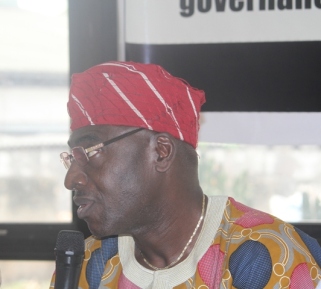
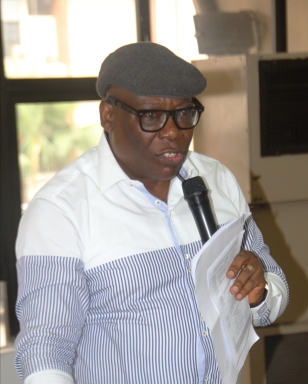
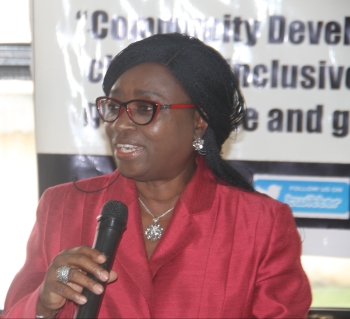

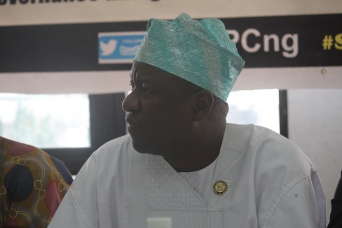


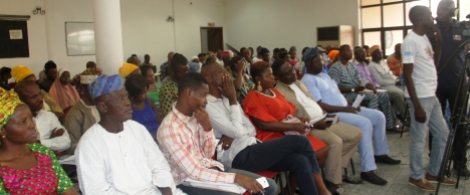

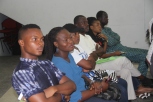






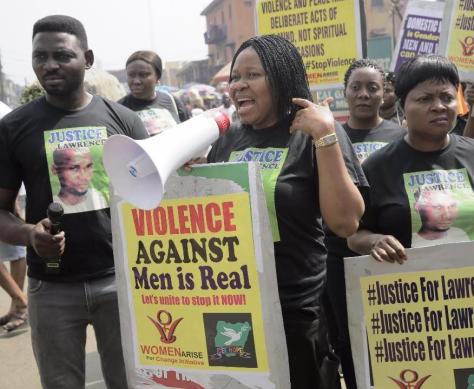 She therefore encouraged those experiencing violence to speak out so that such a person can be duly advised and helped before it leads to injury or death.
She therefore encouraged those experiencing violence to speak out so that such a person can be duly advised and helped before it leads to injury or death.